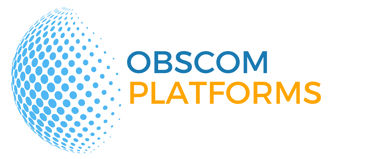The economic governance of digital networks: towards an analysis of Internet markets and competition and their impacts on user rights
The research aims to analyze the dynamics of economic governance of digital networks and their impacts on user rights in countries on different continents through mapping and assessment of relevant market structures, competitive strategies of the main competitors and economic regulation initiatives in different countries and regional blocs. Part of the project consists of developing a discussion on the Political Economy of the Internet, from the perspective of the Political Economy of Communication. Starting from the recognition of the transnational character of digital networks, the research proposes a twofold approach by selecting a set of countries from different continents and also constructing an assessment of the Brazilian situation. In this sense, the following cases are analyzed: Brazil, European Union, Argentina, United States and China. Thus, we seek to understand the particular scenarios and the articulation between them, considering Brazil and Argentina as examples of Latin America's insertion in the digital economy; the country where the main corporations in the sector originate, the United States; and China, which emerges as its main competitor. The project also addresses the perspective of the European Union, where governance actions have been formulated that are more attentive to issues such as the right to personal data protection and the establishment of antitrust measures.
The universe of digital networks is broken down into two large groups: Internet connection providers and application and content providers, taken into their own dimensions due to the specificities of each market segment. The analysis of economic governance takes place through five axes: 1) Political-institutional environment: formed by normative frameworks (such as laws, decrees and standards), public bodies and competitive regulatory authorities with an impact on the specific sector and the performance of these institutions over these markets; 2) Technological trajectories of technical solutions of the technological paradigm of digital networks that affect the market structure and competitive dynamics; 3) Market structures: understood as the manifestation of competition in a given sector, including the quantity and participation of each agent in the activities that make up this area, covering barriers to entry (economic-productive and political-institutional); 4) Business strategies: characterized by the conduct of agents in a given market to obtain better positions in the market dispute (including competitive and anti-competitive practices); 5) The ways in which countries are inserted into global value chains and global economic and political-institutional governance processes. Based on the general framework, economic governance measures will be analyzed and proposed to guarantee rights in Brazil from the perspective of the decalogue of the Internet Steering Committee in Brazil (CGI.Br) and rights provided for in current legislation.
The study is justified by the centrality of digital networks in contemporary societies and the impacts of concentration in markets related to them, a phenomenon that mobilizes attention from the competitive sphere to elections, including concerns about concentration of power and political impacts, one of the examples of which is the problem of misinformation. The Internet rises both as a relevant economic segment in itself and as a mediator of changes in the economy as a whole. Power in digital markets, therefore, has impacts not only on these, but on growing spheres of social life, which is why concentration emerges as a widespread concern. Regulatory authorities have been opening investigations against sector giants, such as Google, Facebook, Amazon and Apple. Academics, international organizations, national authorities and civil society entities have been focusing on the topic with a view to updating antitrust instruments to the new dynamics that have been articulated by so-called digital platforms. It is in this perspective that this project fits.
The project was included in a notice resulting from the Scientific and Technological Cooperation Agreement between the São Paulo Research Support Foundation (FAPESP), the Ministry of Science, Technology and Innovation (MCTIC) and the Internet Steering Committee in Brazil (CGI.br ) - Thematic Research Project - Call for Proposals (2021). Based at the Federal University of Sergipe (UFS), it has the participation of researchers from different institutions.
Pesquisadores
César Bolaño
Pesquisador Responsável
Murilo Ramos
Pesquisador Principal


Alain Herscovic
Pesquisador Principal


Verlane Aragão
Pesquisadora Associada


Helena Souza
Pesquisadora Associada
Ruy Sardinha
Pesquisador Associado






Daniela Monjé
Pesquisador Associado
Helena Martins
Pesquisadora Pós-Doc




Danilo Oliveira
Pesquisador em Treinamento Técnico


